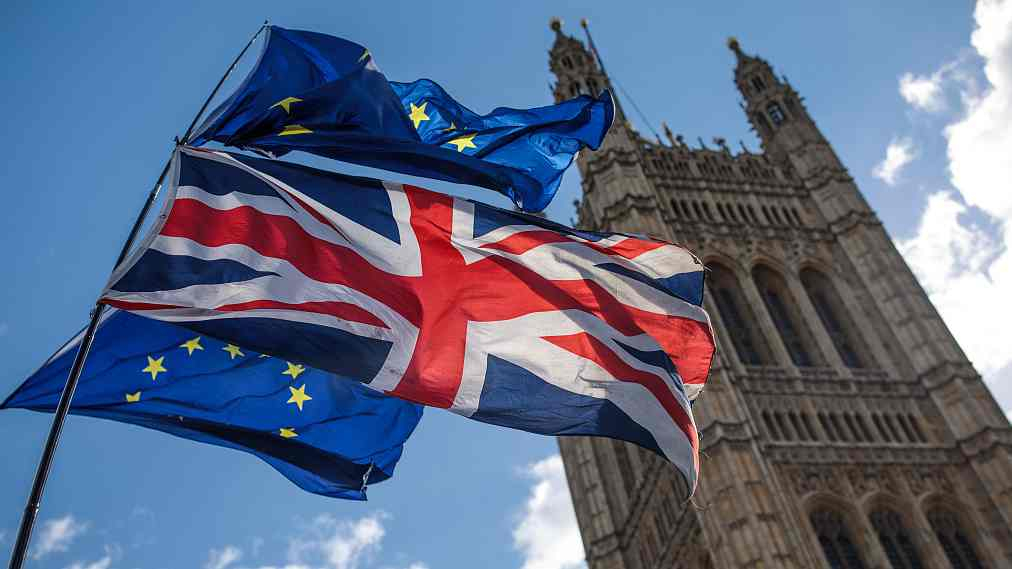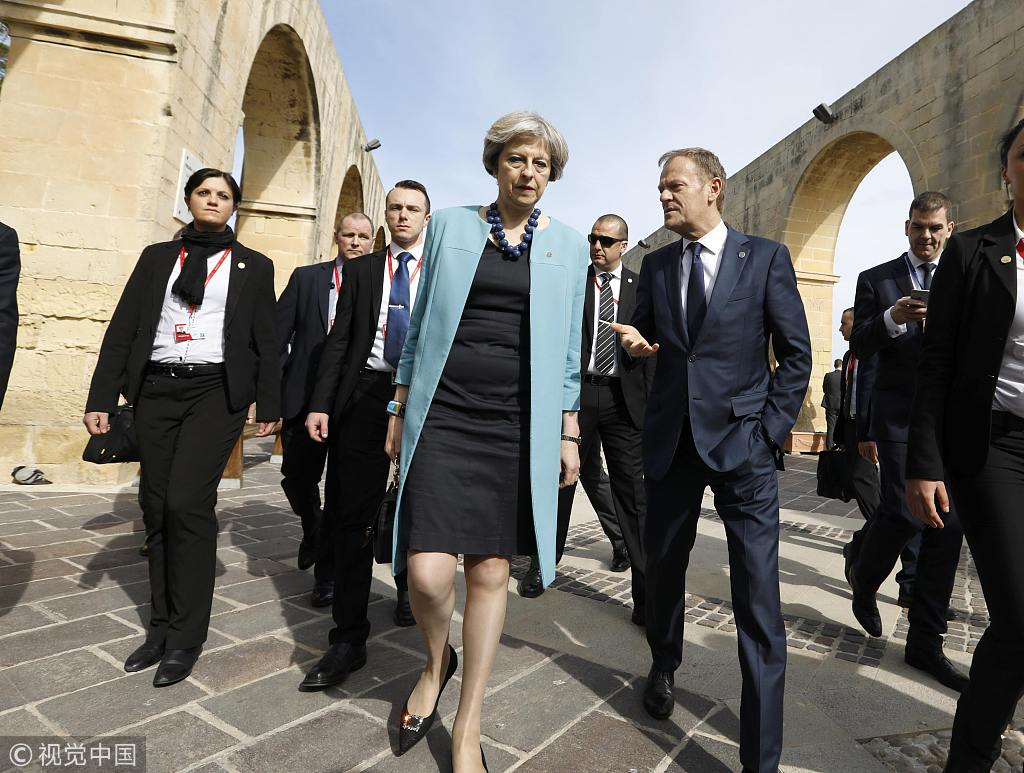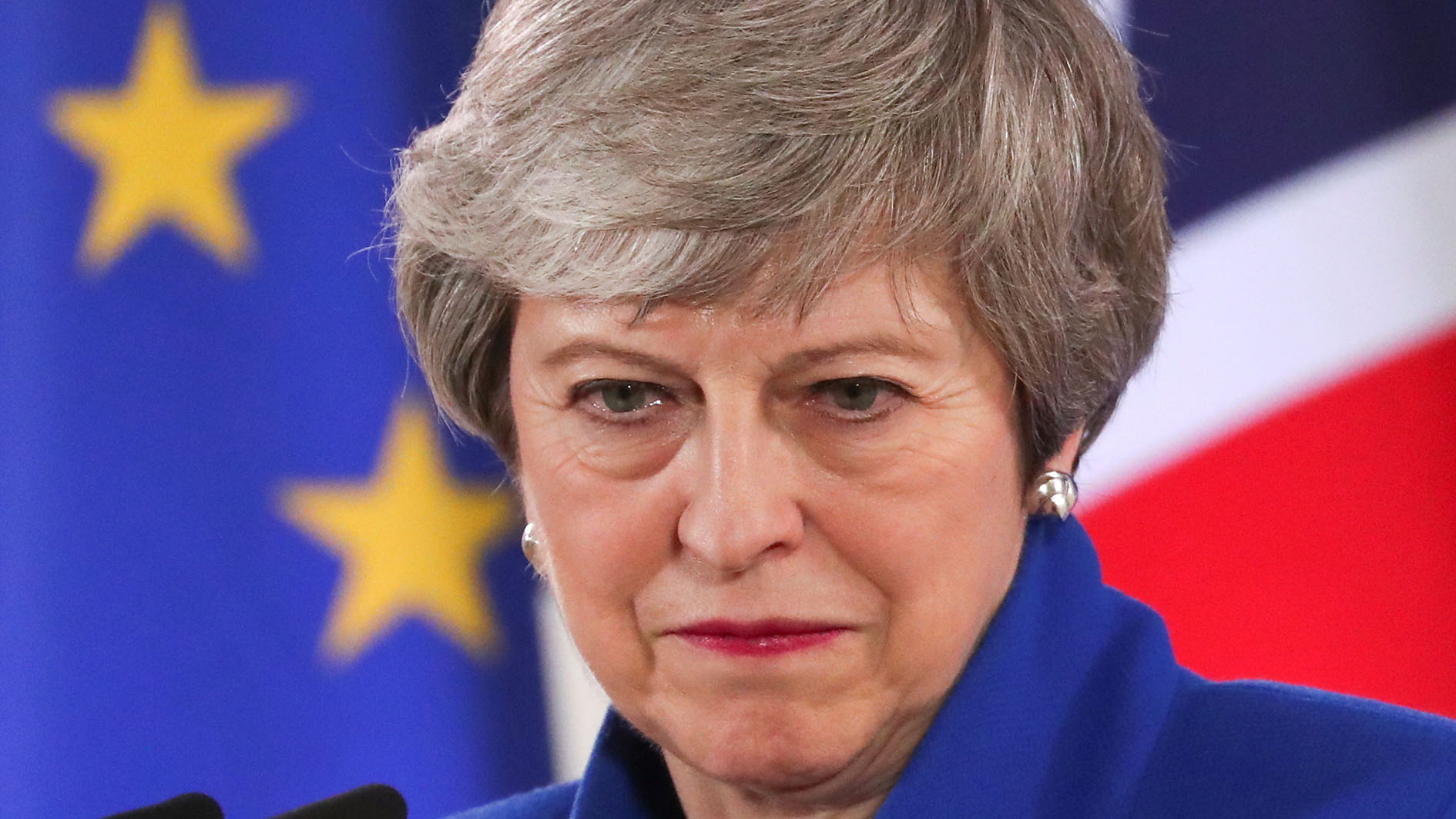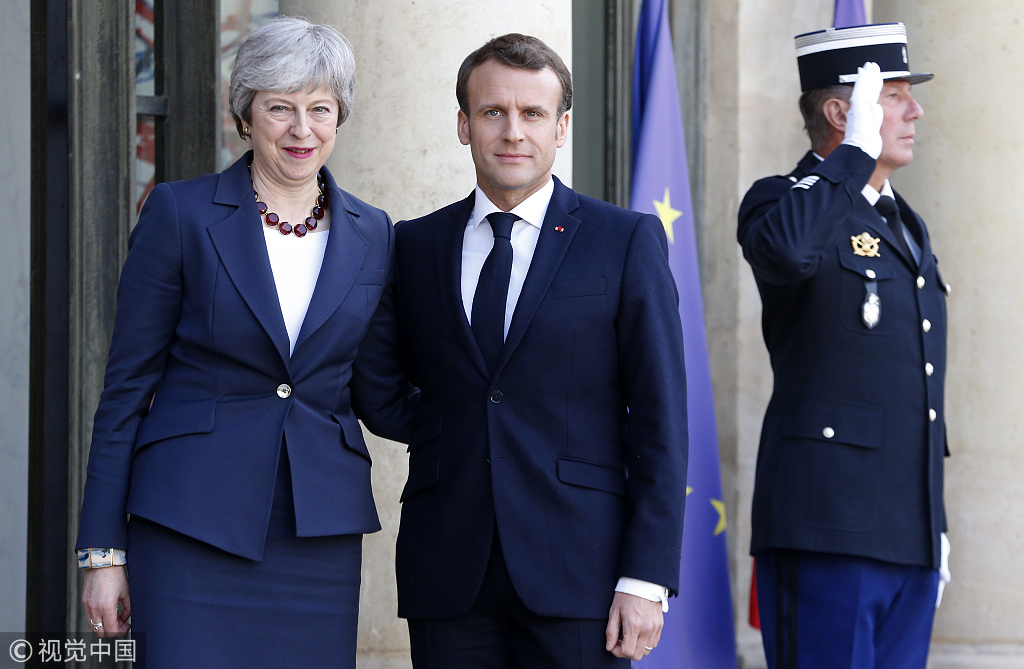
Europe
07:14, 11-Apr-2019
EU grants Brexit delay until October 31
Updated
14:31, 11-Apr-2019
CGTN

EU leaders agreed on Thursday to delay Brexit until the end of October, with a review in June.
The late-night agreement means Britain will not crash out of the bloc on Friday and gives Prime Minister Theresa May more than the three months she had asked for to build a parliamentary majority behind the withdrawal treaty she negotiated with the EU last year.

British Prime Minister Theresa May and European Council President Donald Tusk walk together during a break in the European Union leaders summit in Valletta, Malta, February 3, 2017. /VCG Photo
British Prime Minister Theresa May and European Council President Donald Tusk walk together during a break in the European Union leaders summit in Valletta, Malta, February 3, 2017. /VCG Photo
October 31 would correspond to the end of the five-year mandate of the present EU executive Commission.
'Don't waste the time'
"Please don't waste this time," European Council President Donald Tusk told the UK government in a news conference on Thursday, after eight hours of talks on the matter.

Screenshot of Tusk's tweet
Screenshot of Tusk's tweet
He said Britain still had all the options on Brexit available during the extension, from approving the stalled divorce deal, to changing its leave strategy to cancelling the departure altogether.
European Commission President Jean-Claude Juncker said he was certain Britain would honor the "sincere cooperation" obligation.
"We will have a Brexit with a deal. I'd prefer no deal without Brexit," Juncker told a news conference.
01:41

The summit deal in Brussels in the early hours of Thursday meant Britain will not leave the bloc on Friday without a treaty to smooth its passage. But it offers little clarity on when, how or even if Brexit will happen, as May struggles to build support in parliament for withdrawal terms she reached with the EU last year.
With German Chancellor Angela Merkel insisting that Britain would not be forced out and that a chaotic no-deal departure must be avoided if at all possible, there was never any real doubt that May would get an extension.
Leaders would meet again in June to assess the situation. Britain could have left by then if May succeeds in building a coalition for her deal with the Labour opposition – though there is no sign of agreement yet.
Macron's unhappy
French President Emmanuel Macron has refused to give Brexit another year.

French President Emmanuel Macron welcomes British Prime Minister Theresa May (L) prior to their meeting at the Elysee Presidential Palace in Paris, France, April 9, 2019. /VCG Photo
French President Emmanuel Macron welcomes British Prime Minister Theresa May (L) prior to their meeting at the Elysee Presidential Palace in Paris, France, April 9, 2019. /VCG Photo
Macron's push for a June Brexit and strong opposition to other leaders' preference for a much longer extension that might increase the chances of Britain changing its mind to stay in the bloc meant the meeting ended up with the October compromise.
"It's true that the majority was more in favor of a very long extension. But it was not logical in my view, and above all, it was neither good for us, nor for the UK," he said.
(With input from Reuters)

SITEMAP
Copyright © 2018 CGTN. Beijing ICP prepared NO.16065310-3
Copyright © 2018 CGTN. Beijing ICP prepared NO.16065310-3